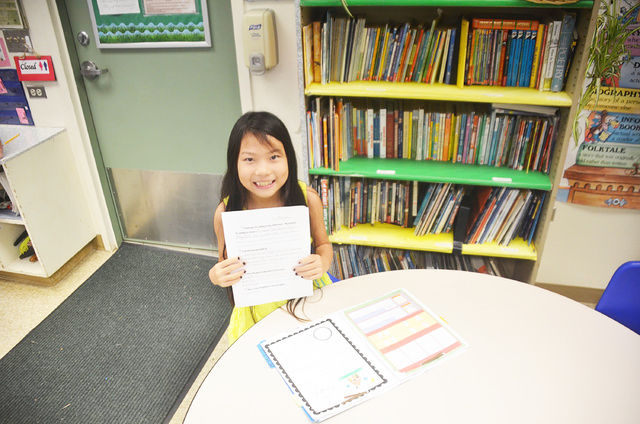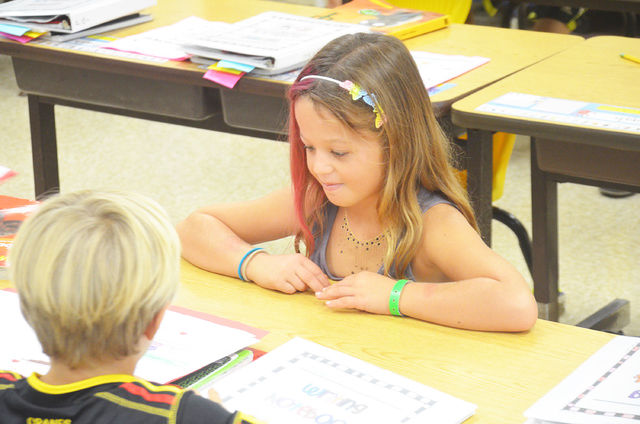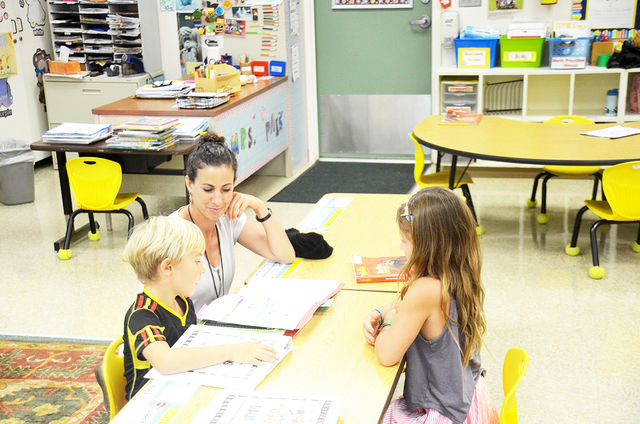HANALEI — Parent-teacher conferences are’t usually fun for the students involved. But Hanalei Elementary School, with the support of first-year principal Taharaa Stein, is changing that.
Stein and staff are making changes to the usual parent-teacher conference and instead, allowing the student to lead the discussion.
“When I came to Hanalei School and we were planning the parent-teacher conference schedule, a couple of teachers said that they were doing student-led conferences,” Stein said. “So I asked them to share with me what they did because they seemed to have perfected the process.”
Stein sat down with teachers Wendy Paik and Karla Rowan to see what works with students and what doesn’t.
“It’s a pretty comprehensive process,” Stein said. “They work with their kids: they train them on setting goals and putting together a work portfolio of their best work samples. Sometimes these parent conferences can be really about the teacher and the parent, leaving the student out of it, which is not the point. The point is to let the kids talk about what they’re doing and take accountability of their strengths and challenges.”
In Rowan’s classroom, students are split up into groups of three as they read each other their work and answer questions that the listener may have. It’s a real-life simulation of how a student would interact with their parent and teacher during the conference to promote accountability and pride in each student’s work.
It takes a lot of time and energy, but it helps the students become self-directed learners.
“I find that the reason I do these student-led conferences like this is because they’re really aware of their strengths and they actually know the areas they struggle in and want to get better at,” Rowan said.
While the criteria is different between Rowan and Paik’s classes because of grade level, the fundamental lessons remain the same.
“We build a community in here and so they realized that everyone is good at different things and everyone is working on different things to get better,” Paik said. “We help each other and it’s important for them to take ownership of their learning and share it with their families and realize that they’re families can help them as well … It brings a connection between home and school.”
Cassidy Rogoff, a student in Mrs. Paik’s first grade class, couldn’t wait to show her parents the work she has been doing inside the classroom and how far she’s come since the beginning of the year.
“I like that I get to share what I’m doing in my classes,” Rogoff said. “It’s fun to share with other people what I get to do in class.”
Ownership, accountability and pride are three core values of this student-led conference, which has received positive feedback on the national level.
According to an article in ERIC Digest by Donald G. Hackmann, assistant professor of educational leadership and policy studies at Iowa State University, students assume greater control of their academic progress, acceptance of personal responsibility, create a healthier student-parent dialogue and an increase in parent attendance at the conferences.
“The kids realize that I’m there as a facilitator,” Paik said. “I tell them that it’s their classroom. To be a self-directed learner, you have to be able to do it without me.”
It’s a relatively new approach to getting students engaged in the classroom, but this is the type of experience children, no matter age they may be, need to move forward in their educational career, Stein said.
“Kids need to have experiences in education outside of doing worksheets and stuff like that,” Sten said. “The better their experiences are, the more they’re going to want to come to school.”






